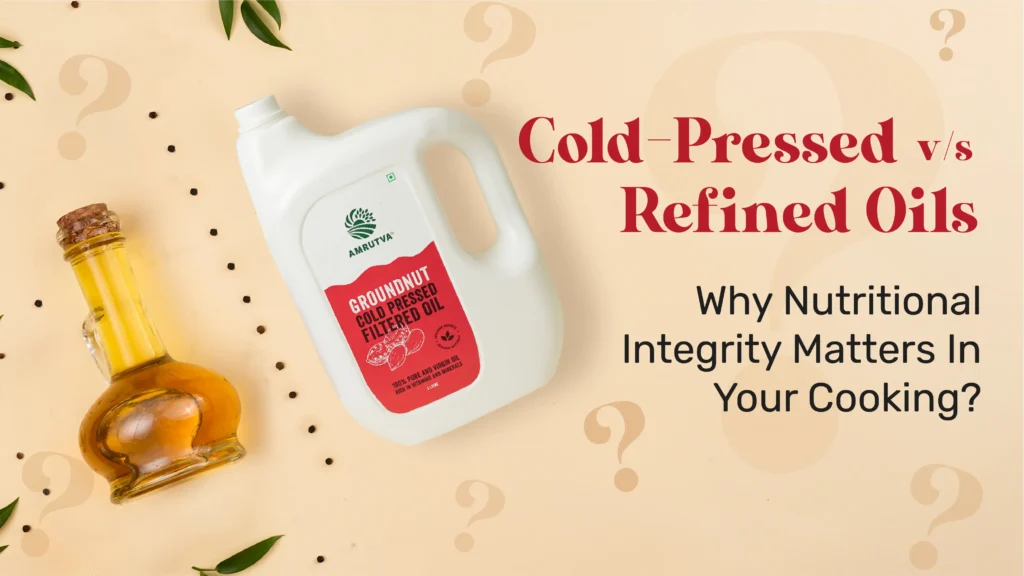
Choosing the right cooking oil can significantly impact your health, the flavour of your dishes, and even the sustainability of your kitchen. But with so many options available, how do you decide between cold-pressed and refined oils? This article explores the key differences and why nutritional integrity should be your top priority.
What Are Cold-Pressed Oils?
Cold-pressed oils are extracted using a natural process that involves crushing seeds or nuts
and pressing them at low temperatures. This method preserves the oil’s essential nutrients,
antioxidants, and natural flavour.
Benefits of Cold-Pressed Oils:
– Nutrient-rich :– Retains vitamins, minerals, and antioxidants
– Better flavour :– Offers a more authentic and rich taste
– Less processed :– No chemicals or high heat involved
What Are Refined Oils?
Refined oils undergo extensive processing, including heating, bleaching, and chemical
treatments, to remove impurities and increase shelf life. While this makes them more
versatile, it often strips away essential nutrients.
Downsides of Refined Oils:
– Loss of nutrients :– High heat destroys vitamins and antioxidants
– Chemical exposure :– Solvents and additives may be used
– Diminished flavour :– A neutral taste lacking natural essence
Why Nutritional Integrity Matters
Cold-pressed oils retain their natural health benefits, making them better for heart health,
digestion, and overall well-being. Incorporating these oils into your diet ensures that you get
the maximum nutrition without unwanted chemicals.
How to Use Cold-Pressed Oils
– Groundnut oil :– Ideal for sautéing, frying, and Indian cuisine
– Sesame oil :– Perfect for dressings, marinades, and stir-fries
Cold-pressed oils are the way to go if you prioritize health and authentic flavor in your
cooking. Choose quality over quantity and embrace natural goodness with every meal.
